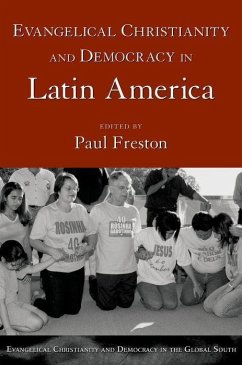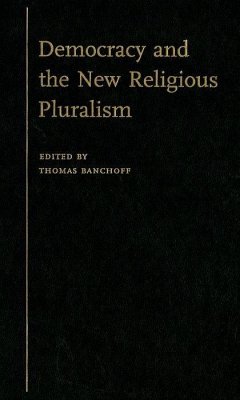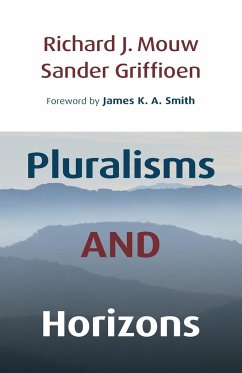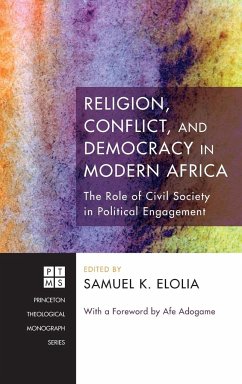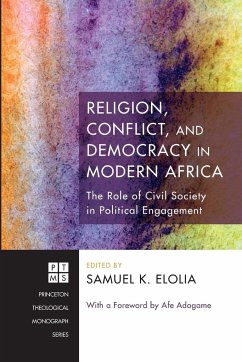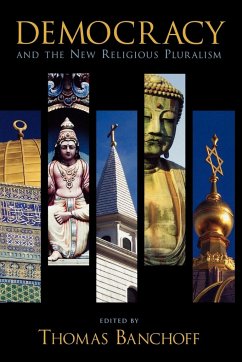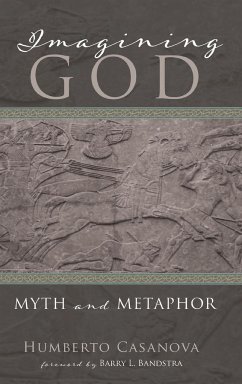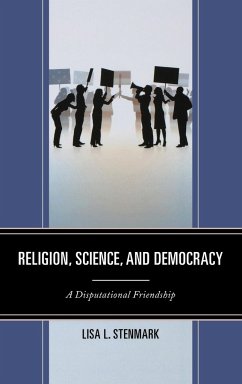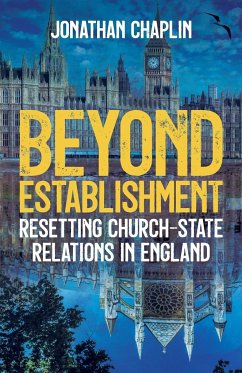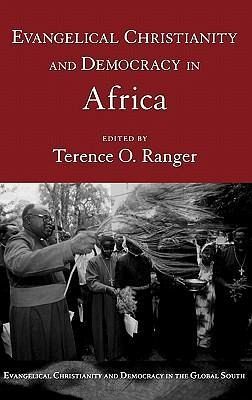
Evangelical Christianity and Democracy in Africa
Versandkostenfrei!
Versandfertig in 1-2 Wochen
89,99 €
inkl. MwSt.
Weitere Ausgaben:

PAYBACK Punkte
45 °P sammeln!
This is one of four projected volumes to emerge from a massive, Pew-funded study that sought to answer the question: What happens when a revivalist religion based on scriptural orthodoxy participates in the volatile politics of the Third World? Is the result a democratic politics of the ballot box, or is it more like an authoritarian politics of command from on high? Does the evangelical faith of the Bible hinder or promote a politics of the ballot box? At a time when the global-political impact of another revivalist and scriptural religion - Islam - fuels vexed debate among analysts the world...
This is one of four projected volumes to emerge from a massive, Pew-funded study that sought to answer the question: What happens when a revivalist religion based on scriptural orthodoxy participates in the volatile politics of the Third World? Is the result a democratic politics of the ballot box, or is it more like an authoritarian politics of command from on high? Does the evangelical faith of the Bible hinder or promote a politics of the ballot box? At a time when the global-political impact of another revivalist and scriptural religion - Islam - fuels vexed debate among analysts the world over, these volumes offer an unusual comparative perspective on a critical issue: The often combustible interaction of resurgent religion and the developing world's unstable politics. The present volume considers the case of Africa, the region with the world's fastest expanding population. Christianity, especially in its evangelical and Pentecostal forms, has acquired many millions of new adherents in Africa in recent decades. The attitudes and behavior of these believers could have vast consequences for growth, development and democratization. In his introduction, editor Terence Ranger provides a historical overview. The book then offers individual case studies of six countries: Nigeria, Zimbabwe, South Africa, Kenya, Zambia, and Mozambique. The contributors, mainly younger scholars based in Africa, bring first hand-knowledge to their chapters and employ both field and archival research to develop their data and analyses. The result is a groundbreaking work that will be indispensable to everyone concerned with the future of this volatile region.




